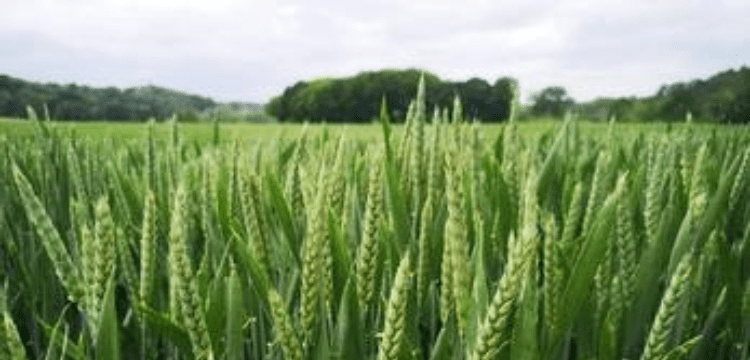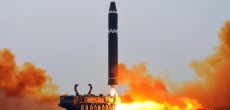[vc_row][vc_column][vc_column_text dp_text_size=”size-4″]The first harvest of an innovative wheat experiment is about to be welcomed by farmers and engineers at a farm in Sharjah. In March, harvesting equipment will assemble in the fields to gather the finished crops. The 400-hectare compound in Mleiha, which is nearly the size of 500 football fields, was seen by The National. The Sharjah department of agriculture and livestock is in charge of the project.
Sheikh Dr. Sultan bin Muhammad Al Qasimi, Ruler of Sharjah, officially inaugurated the farm’s first phase in November as machine operators drove through the fields scattering seeds. The arid area at the foot of steep mountains has been transformed into a lush oasis in just four months, and it is now capable of producing up to 1,700 tonnes of wheat.
“We are expecting the harvesting date to be any time between March 15 and 20,” said Dr Khalifa Musabeh Ahmed Alteneiji, Chairman of the Department of Agriculture and Livestock.
“The wheat will be sold locally in Sharjah and the United Arab Emirates.” Without the use of pesticides, chemicals, or genetically modified seeds, the crop was cultivated. Wheat will be processed at mills after harvest in order to make it edible. We anticipate the products to be on the market in May or June, according to Dr. Alteneiji.
The goal is to gradually expand the area to 1,900 hectares. Dr. Alteneiji outlined the significance of cultivating the crop in a nation where 1.7 million tonnes of wheat are imported. Wheat is a valuable strategic commodity with excellent nutritional value and long-term storage potential, he claimed.
“During the Covid-19 pandemic and the war between Russia and Ukraine, the world faced some problems in the provision of wheat and food supply chains. From that perspective, we received directives from Sheikh Dr Sultan bin Muhammad Al Qasimi, the Ruler of Sharjah, to start this farm.” Teams discovered that the area in Mleiha offered the emirate’s best growing conditions for wheat when they took the soil sample for study, he continued.
AI-based systems
The farm is equipped with state-of-the-art technology, which includes soil sensors as well as satellites that perform thermal imaging of the site. The sensors can measure the quantity of water in the soil to avoid wastage. The farm also has an on-site weather station that can predict temperature, wind speed and humidity for up to 48 hours. If rain is forecast, the farm cuts down on irrigation.
The fields are irrigated using a reservoir with a capacity of 16,000 cubic metres. In one day, up to 60,000 cubic metres of water can be generated out using six large suction pumps. All agricultural processes are automated and mechanised, decreasing the reliance on humans, from seeding to irrigation through harvest. Only two engineers and six to seven employees are currently needed to run the farm.
Research for future
Experts test and identify wheat cultivars suitable for regions like the UAE as part of the project. Dr. Alteneiji explained, “We have a little experimental farm where we sow about 30 types of wheat. “Experts study, monitor, and measure the crops every day. We choose the best wheat variety for the project based on these studies, and we endeavour to further develop it in the future.
The cultivation of the crop represents a significant agricultural achievement for the UAE as it gears up to host the Cop28 climate summit and works to improve food security in light of climate change concerns.
[/vc_column_text][/vc_column][/vc_row]











